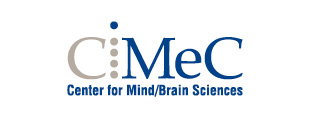A core research topic of CIMeC is the study of how the brain changes as result of experience. We begin adapting to the particular conditions of our environment as soon as we enter the world. From then on, our brains change constantly as we acquire new cognitive and motor skills, for example when learning a new language or mastering a musical instrument. Our brains also change under particular challenges, such as stroke, and with the normal aging process.
Furthermore, the function and structure of regions of the brain may adjust following the loss of a sensory modality. All these changes are constrained by the developmental period during which the experiences occur; in some cases we lose some capacity for plasticity as development proceeds. Nonetheless, the brain remains adaptable life-long. A better understanding of how the brain changes in the face of experience may improve our ability to learn, to age healthily, and may inspire the development of rehabilitative therapies. In the quest to understand better the mechanisms underlying learning and plasticity, CIMeC researchers combine the study of behavior with state-of-the-art neuroscience research techniques.
For example, we study the neurobiological basis of language recovery after stroke, and the acquisition of semantic knowledge in healthy individuals; how perceptual representations and attentional control are affected by prior experience, particularly the experience of reward; how a sensory or cognitive brain system deprived of its natural input can re-tune itself for the processing of inputs coming from a preserved sensory system, as demonstrated in deaf and blind individuals; the interaction between available sensory modalities in adults and children with deafness or cochlear implantation; multisensory perception mechanisms in blind and low vision individuals, and in autism spectrum disorders patients; multisensory aspects of body representation; visual plasticity, in particular specificity vs. transfer of learning, and in the role of reward in task-relevant and task-irrelevant perceptual learning. An international collaboration with India is examining the neurobiological impact of intense recitation and memorization regimens implemented by Brahmin priests (Vedic pandits). Finally, we study neuroplasticity in a model system, the olfactory pathway in the honeybee.
PIs working in this area
Attention, Learning and Motivation Group | P.I. Massimo Turatto
Attention, Perception and Aging Group | P.I. Veronica Mazza
Brain and Cognitive Development Group – BCD Group | P.I Eugenio Parise
Cognition Across the Senses - CATS | P.I. Francesco Pavani
Cognition Neurostimulation & Connectivity - CoN&Co | P.I. Carlo Miniussi
Motor Control Group | P.I. Luca Turella
Multisensory Research Group | P.I. Massimiliano Zampini
Neurophysics Group | P.I. Albrecht Haase
Information and Integration lab | P.I. Uri Hasson
Perception to Concepts Group - Per2Con | P.I. Manuela Piazza

